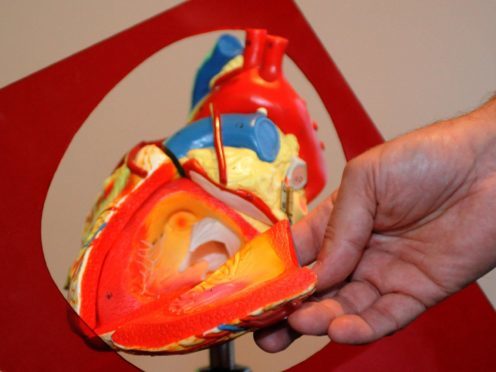Patients who go into hospital with common respiratory or urinary tract infections are more likely to suffer heart attacks or strokes, according to a new study.
Researchers from Birmingham’s Aston University looked at data from 34,027 patients who were treated for common respiratory or urinary tract infections – which could range from nose, throat, lung and kidney to bladder infections.
They found that after successful treatment for their infections, they were 40% more likely to suffer heart disease and 150% more likely to have a stroke.
The findings, which are to be presented at this week’s American College of Cardiology conference in Orlando, are drawn from a study which looked at 14 years of data from 1.2 million patients.
From this information, the researchers compared 34,027 patients who had been admitted with a urinary or respiratory tract infection with an age and sex-matched control group without infection.
Cardiologist Dr Rahul Potluri, an expert in big data medical research at Aston University, said: “It is notable that infection appears to confer as much, if not more, of a risk for future heart disease and stroke as very well established risk factors such as high blood pressure and diabetes.
“Although inflammation has been linked to atherosclerosis (the build-up of fatty material inside your arteries), this is the largest study to show that common infection is such a significant risk factor.”
Factors such as age, gender, ethnicity, obesity and tobacco use which are known to increase the risk of heart disease and stroke were noted along with medical conditions including excess cholesterol, high blood pressure, diabetes and kidney disease, heart failure and atrial fibrillation.
The effects of infection were of similar magnitude to diabetes, hypertension and cholesterol – and more than obesity, according to the study.
Dr Potluri said: “Our figures suggest that those who are admitted to hospital with a respiratory or urinary tract infection are 40% more likely to suffer a subsequent heart attack, and 2.5 times more likely to have a stroke, than patients who have had no such infection – and are considerably less likely to survive from these conditions.”
